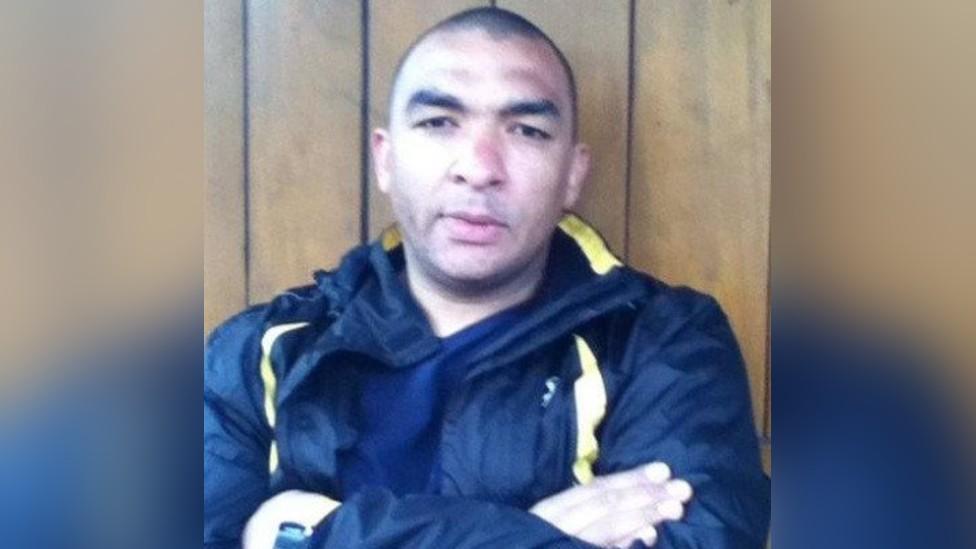Leon Briggs inquest: Restraint officer 'had concerns for man's safety'
- Published
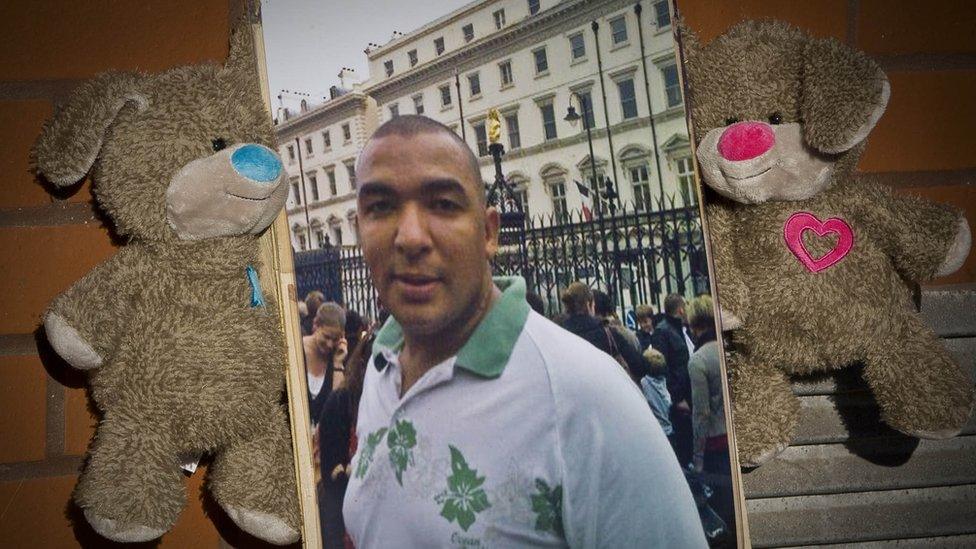
Leon Briggs died in hospital after being restrained and detained at Luton police station in November 2013
A police officer involved in the restraint of a father-of-two who later died said he had believed the man "was a danger to himself", an inquest heard.
Leon Briggs, 39, died in 2013 after being detained under the Mental Health Act at Luton police station.
Acting Sgt Loren Short said Mr Briggs had been "shouting and waving his arms around" and "gesticulating in a fast kind of manner", a jury heard.
He said a colleague took Mr Briggs's arm after being pushed.
The jury has been shown CCTV footage of Mr Briggs skipping between shops and across roads, before two Bedfordshire Police officers handcuffed him and placed him in leg restraints on Marsh Road, Luton, on 4 November 2013.
Mr Briggs was detained in a cell at about 14:25 GMT, but he became unconscious and was pronounced dead in hospital at about 16:15.
The inquest heard his primary cause of death was "amphetamine intoxication with prone restraint and prolonged struggling" with a secondary cause of coronary heart disease.
Leon Briggs: CCTV shows final hours of man restrained by police
Acting Sgt Short, attached at Luton Airport Police Station, was in a marked police armed response vehicle being driven by PC Geoff Bennett, jurors were told.
The inquest heard they were called to a "concern for safety" and a man "aggressively" knocking on a door in Marsh Road.
When pulling up to Mr Briggs, Acting Sgt Short "saw his facial expressions were overemphasised", adding his face looked "strange and intense".
Acting Sgt Short recalled that he said to Mr Briggs "my friend, what's happened?", but agreed there was a chance it was not heard.
The court heard in a statement that Acting Sgt Short spoke to Mr Briggs in a shop, saying "listen, listen, what's happened? Talk to me", and "come on my friend, we're the police, we're here to help".
At this Mr Briggs stopped shouting and screaming, said Acting Sgt Short, adding that furthered his opinion Mr Briggs was suffering from poor mental health.
Acting Sgt Short admitted he may have been mistaken with how much he said to Mr Briggs.
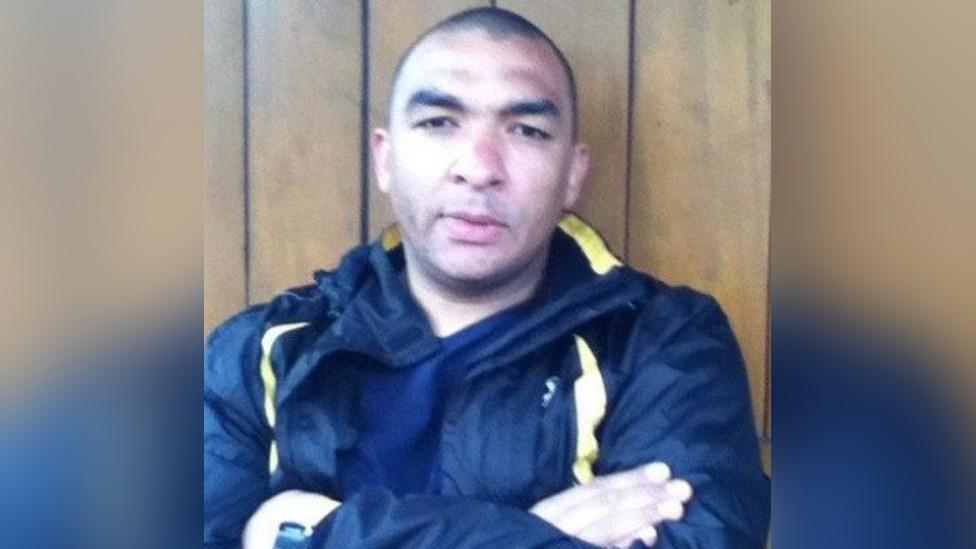
Mr Briggs was described as "a really good dad" who loved spending time with his children
The officer said Mr Briggs then pushed PC Bennett to the shoulder and began shouting incoherently as before.
He said the push "caused a movement in PC Bennett's body" and after this his colleague took hold of Mr Briggs's left arm in the "escort position", and Acting Sgt Short in turn took Mr Briggs's right arm.
Acting Sgt Short said prior to the push his hope was they could go outside and talk, but the push occurred and his "concern for Mr Briggs's safety became higher".
He said they were "trying to talk to him throughout to de-escalate".
"What we have to do… if we didn't take control of Mr Briggs [and] he runs into the road and harms himself… we had an opportunity to stop that and didn't."
He later added: "I had real concerns for Mr Briggs's safety.
"I thought Mr Briggs was a danger to himself primarily but also to members of the public close by."
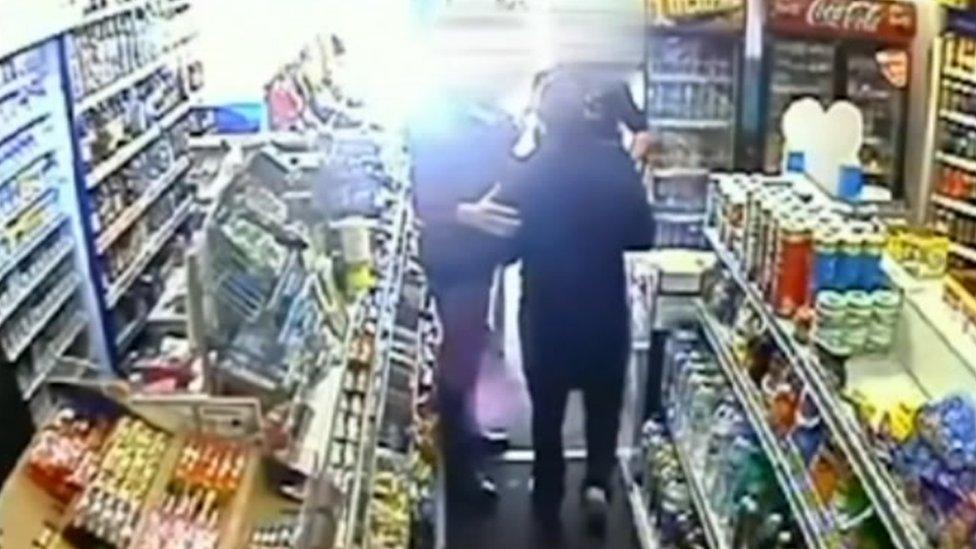
Footage showed Mr Briggs walking out of a shop with officers before he was restrained
The court heard Mr Briggs began to struggle in a more aggressive manner as the officers took hold of him.
Acting Sgt Short later added: "My concern was if he wasn't controlled at that stage there was potential for [violence]."
He said he had been trained in the awareness of positional asphyxia and had placed his right knee on Mr Briggs's shoulder.
He said: "There is still capacity for his chest to still move… but still an element of control so he can't harm himself."
The inquest continues.

Find BBC News: East of England on Facebook, external, Instagram, external and Twitter, external. If you have a story suggestion email eastofenglandnews@bbc.co.uk
Related topics
- Published27 January 2021

- Published26 January 2021
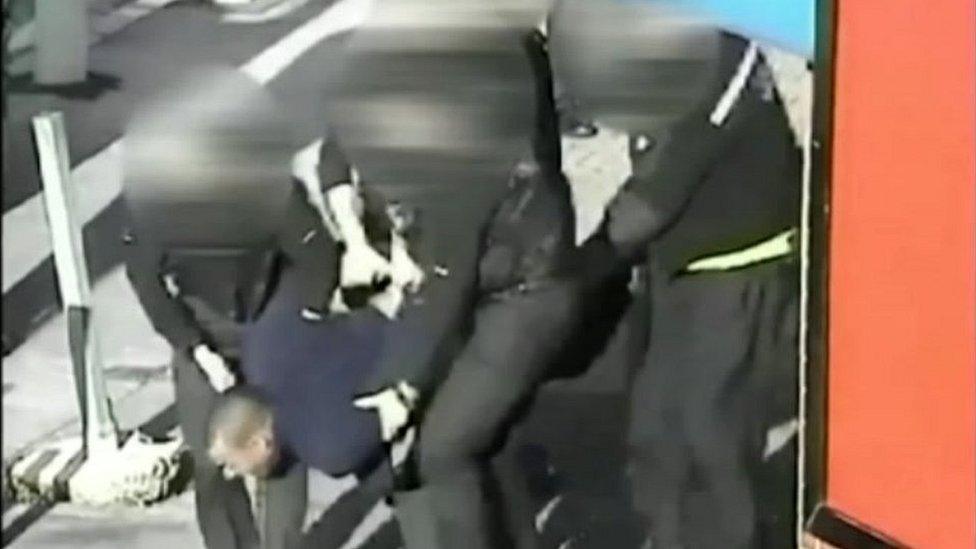
- Published25 January 2021

- Published21 January 2021

- Published19 January 2021
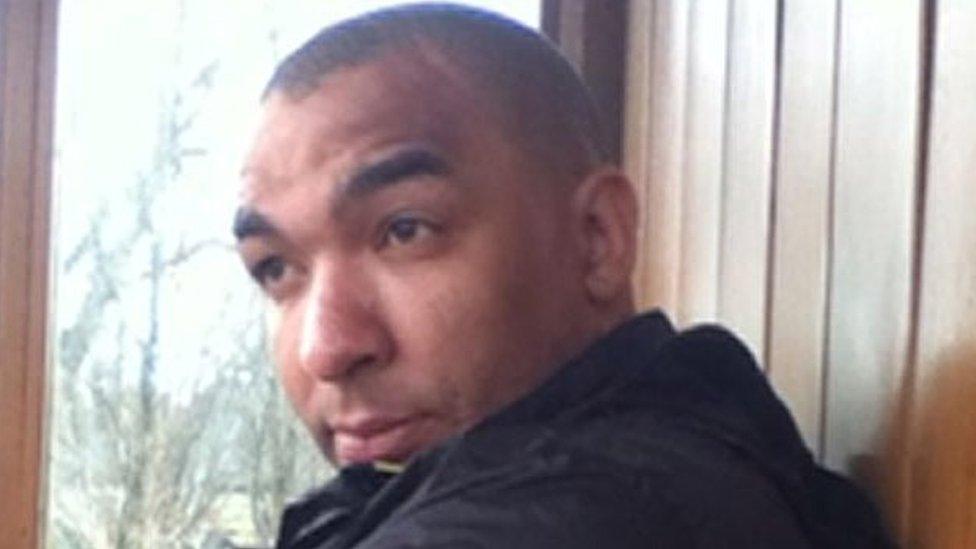
- Published18 January 2021

- Published14 January 2021

- Published13 January 2021
